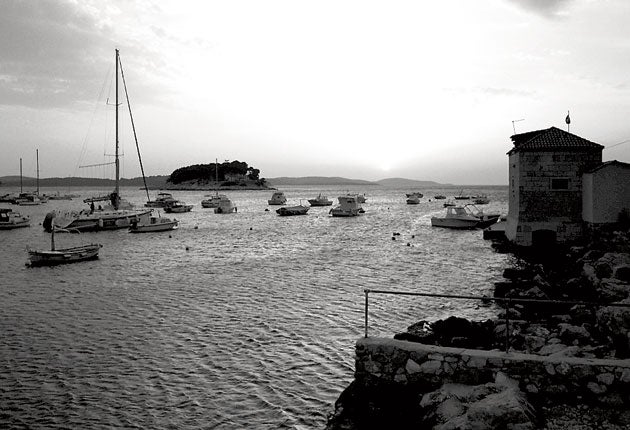Small Talk: Smallcap oil and gas explorers scoop North Sea licences

It has been a busy week for small-cap oil exploration and production (E&P) companies with an interest in the North Sea. The Government's 26th offshore licensing round – postponed from early 2009 on account of the financial crisis – finally concluded. And out of 2,818 possible blocks on offer, a thoroughly healthy 114 licences covering 268 blocks have been awarded, with another 90 still undergoing environmental assessment which may yet turn into licences.
One of the biggest winners was Faroe Petroleum, which was awarded 23 blocks on the same day as the company announced its £60m purchase of an 18 per cent interest in the Blane field off Scotland from Italy's ENI. But Faroe was just one of a slew of successful AIM-listed exploration and production (E&P) companies including Xcite Energy, Valiant Petroleum, Antrim Resources and Zeus Petroleum (a subsidiary of Rheochem). Of the majors, only France's Total made a strong showing, with 11 blocks.
The changing shape of the North Sea industry is a direct result of government policies aimed at getting the most out of the maturing North Sea fields. Alongside tax changes offering incentives for development of challenging finds, such as high-pressure high-temperature deposits, a tweak to the licensing terms sees the window for licence-holders to fulfil their survey commitments lengthened from six to nine years, to help smaller explorers.
"The ambition is to extract as much hydrocarbon out of the North Sea as possible and as the field becomes more and more mature, the finds will get smaller and will be more economically suited to smaller players," Graham Sadler, the managing director of Deloitte's Petroleum Services Group, said. "The latest licensing round targeted smaller companies more than in the past and what we are seeing is a higher proportion of independents with a different economic threshold to their larger counterparts."
Cubus Lux
The Croatian tourist group Cubus Lux may be finally reaching the end of its two-year funding saga. The London-listed company has been battling for funding to build the Olive Island hotel and resort complex to go with the marina it opened in 2007. The first such agreement went belly-up when the bank in question announced a moratorium on lending at the end of 2008 and then folded completely early the following year. With the global banking industry in crisis and recession sucking the life out of economies across the world, finding a successor has proved to be a tricky task.
So far the company is not counting its chickens. But at the AGM last week, chairman Gerhard Huber said the board "has made substantial progress in relation to a number of projects and is also in discussion with third parties in relation to a variety of financing options for individual developments". And sources suggest that good news from Cubus Lux could be as little as weeks away, finally allowing the group to get the Olive Island resort scheme into construction.
There are also several other schemes on the books. Last year, Cubus Lux won the tender for the Valdanos project in Montenegro, which will convert a disused military base into an eco-friendly resort complete with health spas and golf course. And with the Croatian government increasingly interested in developing the country's marina facilities, the group has identified seven sites around the coast of Croatia and its neighbours that could form a "string of pearls across the Adriatic".
Perhaps unsurprisingly with so much going on elsewhere, Cubus Lux is losing interest in the casino business where it all began. Mr Huber told investors last week he is expecting to offload the company's casinos to allow directors to concentrate on the company's real estate projects.
If Cubus Lux's plans start to take shape, the worst of the credit crunch must finally be over.
Forte Energy
The West Africa-focused uranium miner Forte Energy is sure it is on to a good thing. It has been a rough 18 months, including a military coup and bloody unrest in Guinea, one of the company's two areas of operations – and a mass desertion of shareholders as a result. But Forte started drilling at its catchily-named A238 prospect in Mauritania last week, and it has high hopes of success.
The uranium industry is certainly hotting up. Nuclear power is well and truly back in fashion – given a boost by concerns over climate change and booming energy needs in emerging economies such as India and China. If the International Energy Agency has got its sums right, nuclear capacity is set to more than triple over the next decade. And uranium supplies are expected to run short within just a few years.
It has all the makings of a scramble, with Russia already investing more than 20 billion roubles (£405m) in uranium mining and doing deals with the Chinese, who have plans in train for a whopping 120 new reactors.
If Forte can withstand the vagaries of West Africa's political climate, it has plenty of potential. The company owns nearly 13,000 square kilometres of prospective tenements in Mauritania and Guinea. It also already has two so-called maiden JORC resources – conforming to Australian reporting standards – on its books, at Bir En Nar and Firawa, A238 is expected to join the list by the middle of next year.
In a recent interview, Forte COO Brad George dubbed uranium "next year's gold". He may be right. But the company will need luck as well as judgement.
Join our commenting forum
Join thought-provoking conversations, follow other Independent readers and see their replies
Comments